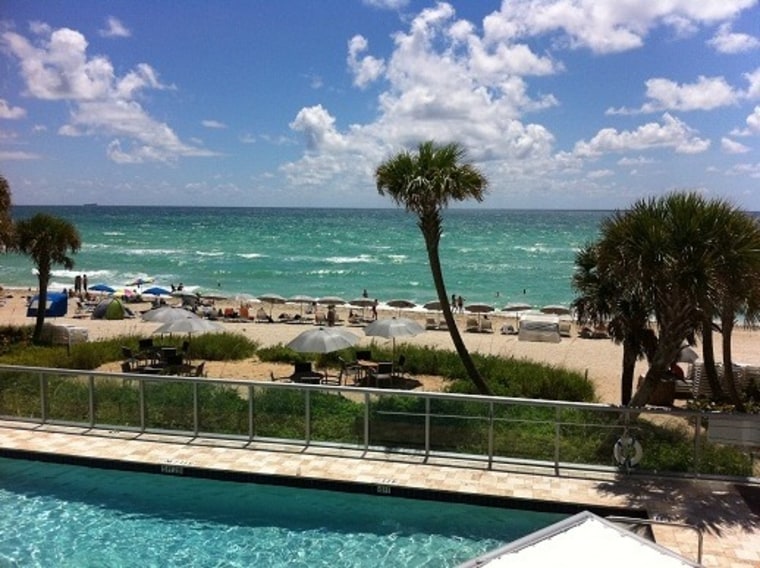When Hurricane Wilma — the most intense Atlantic hurricane on record, with maximum wind speeds of 175 mph — cut a swath of destruction across Mexico’s Yucatán Peninsula in October 2005, thousands of travelers in the region’s popular Caribbean-coast resorts were left terrified and stranded.
Although the Mexican government, tourism authority, and local business owners all mobilized to help travelers cope, remembering Wilma’s devastation — and seeing headlines about Hurricane Irene — has been enough to make some travelers think twice about visiting hurricane-prone destinations.
Peak hurricane season, which runs between August and October in the Caribbean Sea, Gulf of Mexico and the U.S. south Atlantic coast, is certainly nothing to take lightly. And this year’s season may see a fair bit of storm activity: according to the National Oceanic and Atmospheric Administration, there’s a 70 percent chance that in the next few months 14 to 19 storms, with winds of at least 39 mph, will be generated. Seven to 10 of these storms may be hurricanes, with winds of 74 mph.
Still, the lure of these warm-weather destinations, especially during the off-season, can be hard to resist. Crowds are thin, prices are excellent, perks — like free meals and spa treatments — are numerous, and very often, the weather winds up being perfectly fine (if slightly more humid than in high-season months). So, the question is: are there ways to “hurricane-proof” a vacation — to minimize the chances that a storm will ruin a low-season trip to the tropics?
Indeed there are — although most of the tricks for lessening hurricane risks require some research on the traveler’s part. There are websites devoted to tracking local weather patterns, for example. And booking accommodations and flights with companies that offer hurricane guarantees (most often in the form of penalty-free rebooking) is a good way to safeguard a vacation; so is shopping around for and purchasing traveler’s insurance (the further in advance, the better).
Other “hurricane-proofing” methods are less obvious, but can be just as helpful for ensuring a tropical holiday. Many travelers don’t know that booking a cruise, for instance — or vacationing at one of a handful of Caribbean resort areas and islands that fall outside common storm paths (like Bonaire and the San Blas Islands) — can make a big difference in hurricane risk.
While these strategies may not be foolproof, they can go a long way toward protecting travelers' tropical vacation plans (and, worst-case scenario, the travelers themselves). There may not be any way to control the weather, but there are plenty of ways to maximize security — and the likelihood that a dream vacation won’t become a nightmare.
More from Travel + Leisure
